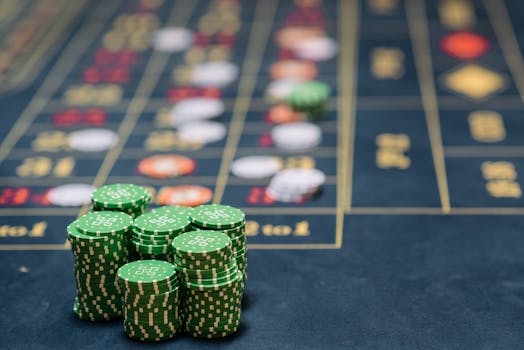How to Stay Objective When Playing Emotionally Charged Games
In the world of gaming, whether it involves board games, video games, or sports, emotions often run high. The thrill of victory and the agony of defeat can profoundly affect our emotions and behavior. This article explores effective strategies to maintain objectivity and keep emotions in check while engaging in emotionally charged games. By staying objective, players can improve their decision-making, enhance their enjoyment, and ensure a fair and respectful environment for all participants.
Recognize and Acknowledge Your Emotions
The first step in managing your emotions during gameplay is recognizing them. It's natural to feel frustrated after a loss or ecstatic after a win, but these feelings can cloud your judgment and affect your performance.
Advantages: Acknowledging your emotions helps in managing them effectively and prevents them from influencing your decisions unconsciously.
Disadvantages: It might be challenging in the heat of the moment to pause and assess your feelings, which could interrupt the flow of the game.
Practical Example: In chess, a player might feel frustrated after losing a piece and might rashly decide to launch an aggressive but poorly planned counterattack. Recognizing this frustration can help the player take a moment to refocus and consider a more strategic move.
Implement a Pre-Game Routine
A consistent pre-game routine can set the tone for a more controlled and objective gameplay experience. This might include deep breathing exercises, a review of strategies, or a motivational talk.
Advantages: This approach prepares the mind for competition, reduces anxiety, and increases concentration, leading to better performance.
Disadvantages: Routines can become too rigid or time-consuming, potentially leading to additional stress if not managed properly.
Practical Example: Professional athletes often use pre-game routines to get into the right mental space. A basketball player might listen to specific music to boost confidence and focus before a game.
Take Regular Breaks
In intense gaming sessions, emotions can escalate quickly. Taking regular breaks helps mitigate this by allowing players time to cool down and gain perspective.
Advantages: Breaks can prevent emotional exhaustion and reduce the likelihood of impulsive, emotion-driven decisions.
Disadvantages: Too frequent breaks might disrupt the game flow and reduce engagement and excitement.
Practical Example: During a long online gaming session, players might take 5-minute breaks every hour to stretch, hydrate, and disconnect briefly from the competitive environment.
Practice Mindfulness and Emotional Regulation Techniques
Mindfulness involves staying present and fully engaging with the current moment without judgment. Practicing mindfulness can help players remain calm and composed, regardless of the game's stakes.
Advantages: Improves focus, reduces stress, and enhances overall emotional control.
Disadvantages: Requires consistent practice to be effective, which might be demanding for some players.
Practical Example: A poker player uses mindfulness to maintain a calm demeanor, preventing opponents from reading their emotional state and gaining an advantage.
Develop a Post-Game Reflection Habit
Reflecting on your emotional responses after each game can provide insights into how emotions affect your play. This reflection can guide you in adjusting your strategies and improving your emotional control in future games.
Advantages: Facilitates continuous learning and emotional growth, improving future game performance.
Disadvantages: Might be time-consuming and could lead to over-analysis if not kept constructive.
Practical Example: A soccer team reviews recordings of their matches to identify moments where emotional reactions led to poor decisions or penalties, using these insights to work on emotional discipline.
Conclusion
Staying objective in emotionally charged games is crucial for both enjoyment and success. By recognizing and acknowledging emotions, implementing a pre-game routine, taking regular breaks, practicing mindfulness, and engaging in post-game reflection, players can significantly enhance their ability to remain composed and make rational decisions. Each approach has its advantages and challenges, but together, they provide a comprehensive strategy for managing emotions effectively.
Whether you're a casual gamer or a competitive athlete, applying these strategies can help you maintain your cool and focus on what really matters: enjoying the game and performing at your best. Remember, the goal is to control the game, not let the game control you.

.png)



